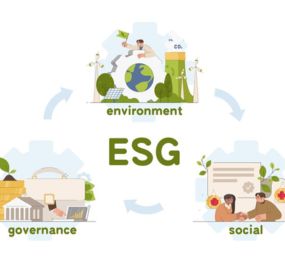Environmental, social, and governance (ESG) factors are increasingly recognized as essential components of sustainable business practices. Beyond financial returns, companies are seeking to create a positive impact on society and the environment. Social impact initiatives, driven by ESG principles, play a vital role in transforming communities and building a more equitable and sustainable future.
What are Social Impact Initiatives?
Social impact initiatives are programs and projects undertaken by businesses to address social and environmental challenges. These initiatives can range from community development programs, education initiatives, healthcare initiatives, and environmental conservation efforts. By investing in social impact initiatives, companies can demonstrate their commitment to corporate social responsibility (CSR) and create a positive legacy.
Benefits of Social Impact Initiatives
- Enhanced Reputation: Investing in social impact initiatives can enhance a company's brand reputation and attract socially conscious consumers and investors.
- Improved Stakeholder Relations: Engaging with communities and stakeholders through social impact initiatives can strengthen relationships and build trust.
- Increased Employee Engagement: Employees who feel connected to their company's social impact efforts are often more engaged and motivated.
- Positive Social Change: Social impact initiatives can address pressing social and environmental challenges, contributing to a more equitable and sustainable society.
Strategies for Effective Social Impact Initiatives
- Identify Key Issues: Prioritize social and environmental issues that align with your company's values and expertise.
- Develop Measurable Goals: Set clear and measurable objectives for your social impact initiatives to track progress and evaluate outcomes.
- Collaborate with Stakeholders: Partner with communities, NGOs, and other organizations to maximize the impact of your initiatives.
- Measure and Report: Regularly assess the outcomes of your social impact initiatives and report on your progress to stakeholders.
- Integrate ESG into Business Strategy: Ensure that social impact initiatives are aligned with your overall business strategy and contribute to long-term sustainability.
Examples of Social Impact Initiatives
- Education Initiatives: Providing scholarships, building schools, or supporting educational programs can improve access to education and create opportunities for young people.
- Healthcare Initiatives: Supporting healthcare programs, building clinics, or providing medical supplies can improve health outcomes in underserved communities.
- Environmental Conservation: Protecting biodiversity, reducing pollution, and promoting sustainable resource management are essential for a healthy planet.
- Community Development: Investing in infrastructure, job training, or economic development programs can help revitalize communities and improve living standards.
By prioritizing social impact initiatives, businesses can create a lasting legacy and contribute to a more just and sustainable world. Social impact investing is not only a moral imperative but also a strategic business decision that can drive long-term value and success.
To register or learn more about the Forum please check here: https://www.leadventgrp.com/events/esg-and-climate-africa-summit/details
For more information and group participation, contact us: [email protected]
















